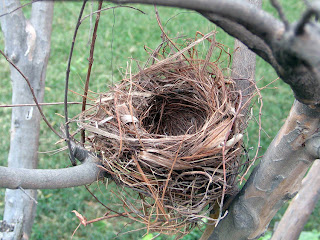My favourites are F. Scott Fitzgerald to his 11-year-old daughter:
Things to worry about:
Worry about courageThings not to worry about:
Worry about Cleanliness
Worry about efficiency
Worry about horsemanship
Worry about…
Don’t worry about popular opinionThings to think about:
Don’t worry about dolls
Don’t worry about the past
Don’t worry about the future
Don’t worry about growing up
Don’t worry about anybody getting ahead of you
Don’t worry about triumph
Don’t worry about failure unless it comes through your own fault
Don’t worry about mosquitoes
Don’t worry about flies
Don’t worry about insects in general
Don’t worry about parents
Don’t worry about boys
Don’t worry about disappointments
Don’t worry about pleasures
Don’t worry about satisfactions
What am I really aiming at?
How good am I really in comparison to my contemporaries in regard to:
(a) Scholarship
(b) Do I really understand about people and am I able to get along with them?
(c) Am I trying to make my body a useful instrument or am I neglecting it?
…And this from Ronald Reagan to his 26-year-old son on the eve of his wedding, which - as the website notes - is thoughtful and strikingly honest, but perhaps suggests Reagan senior had his concerns about his son straying!
Dear Mike:
Enclosed is the item I mentioned (with which goes a torn up IOU). I could stop here but I won’t.
You’ve heard all the jokes that have been rousted around by all the “unhappy marrieds” and cynics. Now, in case no one has suggested it, there is another viewpoint. You have entered into the most meaningful relationship there is in all human life. It can be whatever you decide to make it.
Some men feel their masculinity can only be proven if they play out in their own life all the locker-room stories, smugly confident that what a wife doesn’t know won’t hurt her. The truth is, somehow, way down inside, without her ever finding lipstick on the collar or catching a man in the flimsy excuse of where he was till three A.M., a wife does know, and with that knowing, some of the magic of this relationship disappears. There are more men griping about marriage who kicked the whole thing away themselves than there can ever be wives deserving of blame. There is an old law of physics that you can only get out of a thing as much as you put in it. The man who puts into the marriage only half of what he owns will get that out. Sure, there will be moments when you will see someone or think back to an earlier time and you will be challenged to see if you can still make the grade, but let me tell you how really great is the challenge of proving your masculinity and charm with one woman for the rest of your life. Any man can find a twerp here and there who will go along with cheating, and it doesn’t take all that much manhood. It does take quite a man to remain attractive and to be loved by a woman who has heard him snore, seen him unshaven, tended him while he was sick and washed his dirty underwear. Do that and keep her still feeling a warm glow and you will know some very beautiful music. If you truly love a girl, you shouldn’t ever want her to feel, when she sees you greet a secretary or a girl you both know, that humiliation of wondering if she was someone who caused you to be late coming home, nor should you want any other woman to be able to meet your wife and know she was smiling behind her eyes as she looked at her, the woman you love, remembering this was the woman you rejected even momentarily for her favors.
Mike, you know better than many what an unhappy home is and what it can do to others. Now you have a chance to make it come out the way it should. There is no greater happiness for a man than approaching a door at the end of a day knowing someone on the other side of that door is waiting for the sound of his footsteps.
Love,
Dad
P.S. You’ll never get in trouble if you say “I love you” at least once a day.

